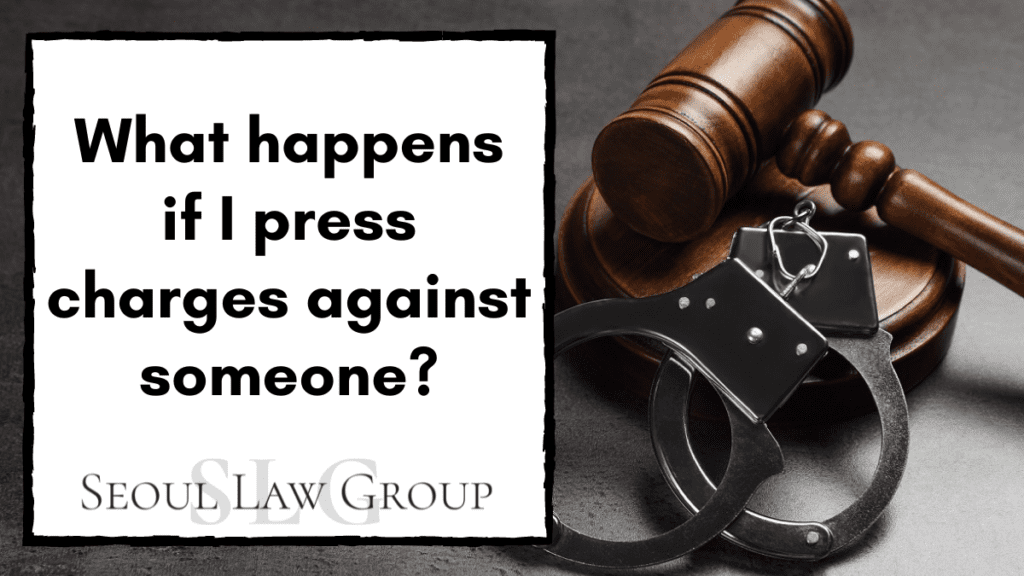The Role of Police and Prosecution: If I press charge against someone, what happens next?
In Korea, there are two institutions handle the criminal cases: the police and the prosecution. They never got along with each other in the past. Especially now there is a lot of confusion going on, due to the recent change in their investigation power in 2020. Let us explain what has changed.

Original Criminal Case Procedures in Korea
Originally, in Korea, when someone files a criminal complaint, the subsequent procedure was as follows.
- The complainant files the case to the police.
- The police investigate the case under the direction of the prosecution.
- When the investigation is completed, the police transfer the case to the prosecution, and also submit their opinions that “This case should be prosecuted” or “This case should not be prosecuted.”
- The prosecution prosecutes or not prosecutes the case. (If there are not enough materials for them make decision, the prosecution send the case back to police, demanding further investigation.)
- If the prosecution prosecutes, the case is sent to the criminal court.
- However, if the prosecution does not prosecute, the case is dropped. The complainant can appeal within 30 days of receiving the notice.
At that time, Article 4 (1) of the Prosecutor’s Office Act looked like this:
Article 4 (Duties of Prosecutors)
(1) Each prosecutor shall have the duties and authority falling under any of the following subparagraphs as a representative of public interests:
-
- Investigation of crimes, filing of prosecutions, and matters necessary for the maintenance thereof
Therefore, even though the police mostly investigated the case, only the prosecution had the authority to make any decision in the end. Even if the police thought the suspect was not guilty, they couldn’t close the case unless the prosecution decided to do so.
Changes made in 2020
In 2020, the Korean government decided to expand the powers of the police while narrow the powers of the prosecution. Now, Article 4, Paragraph 1 of the Prosecutor’s Office Act has been changed as like this:
Article 4 (Duties of Prosecutors)
(1) Each prosecutor shall have the duties and authority falling under any of the following subparagraphs as a representative of public interests:
- Matters necessary for investigating crimes and instituting and maintaining public prosecution: Provided, That the scope of crimes for which a prosecutor may commence an investigation shall be as follows:
(a) Significant crimes prescribed by Presidential Decree, such as corruption crimes, economic crimes, crimes of public officials, election crimes, defense industry crimes, and catastrophes;
(b) Crimes committed by police officers;
(c) Crimes directly related to crimes recognized in connection with those specified in items (a) and (b) and those referred to by a judicial police officer;
Now, the same procedure applies only to the crimes listed in the above provisions. For other crimes, the procedure is changed.
The new procedure is as follows. We highlighted the main changes for you.
- The complainant files the case to the police.
- The police investigate the case in cooperation with the prosecution.
- When the investigation is completed, the police decides whether they would transfer the case to the prosecution or not. If they think the suspect should be prosecuted (= guilty), they transfer the case. But if they think the suspect should be prosecuted (= not guilty), they do not transfer the case.
- When the police do not transfer the case, the case is dropped. The complainant can file an objection against this decision. When the objection is filed, the case gets transferred to the prosecution.
- When the case gets transferred, the prosecution prosecutes or not prosecutes the case. (If there are not enough materials for them make decision, the prosecution send the case back to police, demanding further investigation.)
- If the prosecution prosecutes, the case is sent to the criminal court.
- However, if the prosecution does not prosecute, the case is dropped. The complainant can appeal within 30 days of receiving the notice.
Therefore, if you want to press charge against someone, now you should check what kind of crime it is. The subsequent procedures can be very different depending on the crime.
